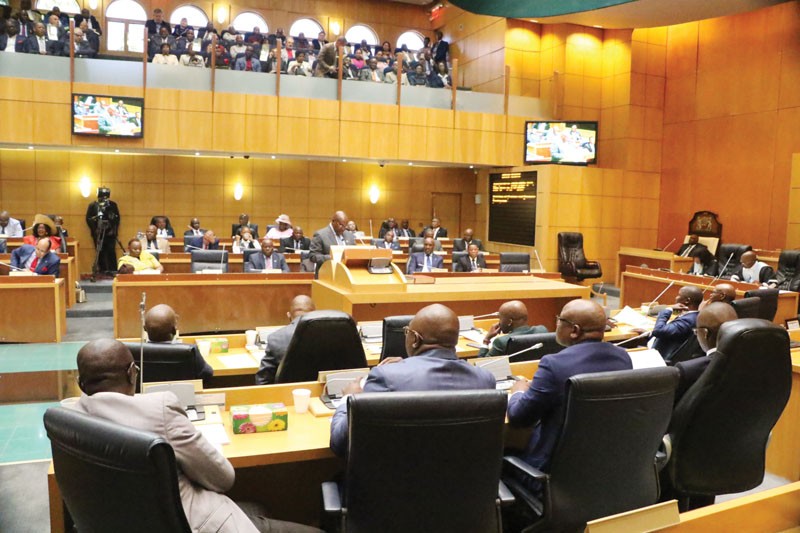Assets and liabilities bill is without force
Goitsemodimo Kaelo | Friday July 5, 2019 14:31


In effort to implement a long time parliament decision, the Minister for Presidential Affairs, Governance and Public Administration, Nonofo Molefhi published a draft of the Declaration of Assets and Liabilities Bill in the Government Gazette. The intention is to present the instrument to the National Assembly during this winter session of Parliament.
The move comes after decades of public outcry for the country to have a law on declaration of assets and liabilities as way to fight the ever-increasing corruption levels in the country.
However, the attorney has described the draft as a watered down bill. The lawyer who spoke to Mmegi on condition of anonymity said the proposed law is similar to the one enacted by Mauritius in 1991, which has since been revised.
Mauritius enacted The Declaration of Assets Act in 1991 but revised it in 2018 because it was outdated. The lawyer also said the draft bill will in no time serve no purpose and calls for its revision will be in the offing.
“To me this Bill is as good as outdated. This draft Bill looks surprisingly similar to the one passed by Mauritius over 26 years ago, which had to be revised in 2018 after realising that it has passed time. If you read the provisions you will realize that the two are similar. It is good to have such a law in place but it has to serve challenges of the current times,” he said.
On key difference between the two bills, the lawyer said the revised Mauritius one requires the declarations to be made public, while that is not case with the one Molefhi proposes.
“Broadly speaking they set up the duty to declare the college of people who should declare and list offenses for non-compliance. That is about it in general terms,” he said.
He wondered why in the case of Botswana the declaration should be submitted to the Director General of the Directorate on Corruption and Economic Crime (DCEC), Speaker of the National Assembly, Permanent Secretary to the President amongst others. But the declarations are not made public.
The provision to make the declarations public, he said, would go a long way in fighting corruption by those in power.
Molefhi has proposed that the declarations would be made to the Minister for Presidential Affairs, Governance and Public Administration by the Director General of Directorate on Corruption and Economic Corruption (DCEC), to the Director General, Speaker of the National Assembly, Permanent Secretary to the President (PSP) and Permanent Secretary (PS).
The lawyer also stated that in essence, the draft Bill just sets up the duty to declare, delimit the college of people who should declare and list offences for non-compliance.
“That’s about it in general terms,” he added.
The draft Bill also proposes that a person to whom the Act applies to shall make a declaration within 60 days after the coming into operation of the Act. Such as person’s appointment or assumption of office or the taking and subscribing before the National Assembly, of an oath of allegiance shall be considered in implementing the Act.
Furthermore, any person who contravenes the provisions of the Act commits an offence and is liable to a fine not exceeding P20 000 or to imprisonment for a term not exceeding two years, or both.
The draft Bill also forces those, whom the declarations are made to, preserve the confidentiality of all information contained in such a declaration. Such confidentiality shall subsist even after the termination of one’s term of office or mandate.
The scope of the bill extends to senior government officials and parastatals chiefs, Dikgosi, Judges, magistrates, heads of private enterprises MPs, councillors, spouses and dependent children.
